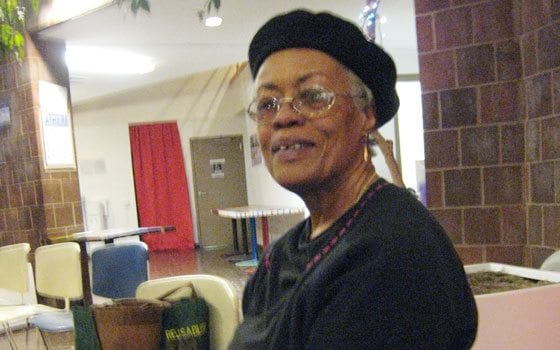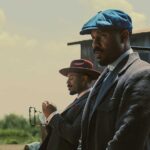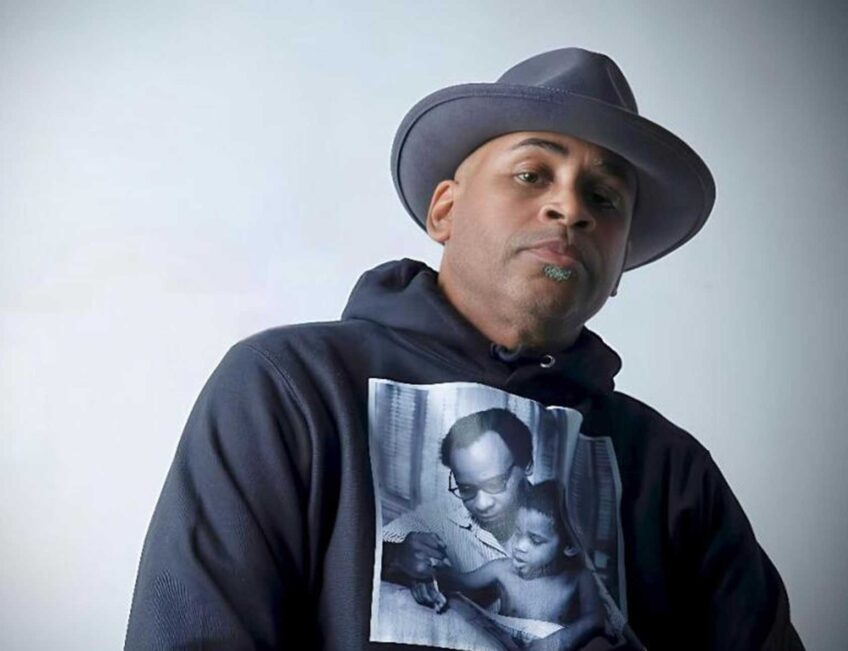

Author: Sandra LarsonAdena Lake, 72, waits for “Letters from Black America” editor Pamela Newkirk to begin reading excerpts from her collection at an event held Thursday, Feb. 19, 2009, at United South End Settlements in Boston.

Author: Sandra LarsonAdena Lake, 72, waits for “Letters from Black America” editor Pamela Newkirk to begin reading excerpts from her collection at an event held Thursday, Feb. 19, 2009, at United South End Settlements in Boston.
Don’t throw away those old letters you found cleaning out your attic: They may just be the stuff of history.
Pamela Newkirk knows. She spent years poring over thousands of letters from attics and archives for her new book, “Letters from Black America,” released earlier this month by publisher Farrar, Straus and Giroux.
The collection includes correspondence spanning from the time of slavery to the election of a black president. The wisdom, advice, confessions, affection and yearning in the letters reveal the history of individuals, families and a people.
“Much of my work is concerned with the stories that are not told about African Americans,” said Newkirk before reading excerpts from the collection at a reception held last Thursday at United South End Settlements (USES) in Boston.
“There are families who love each other, and who have given to this country, serving in wars and on PTAs. That’s what I’m trying to tell,” she said. “I want to give a greater sense of the breadth of the African American experience.”
Newkirk, an award-winning journalist and associate professor of journalism at New York University, grew up in a home where African American history was valued, even revered, she said. One of her aims now is to convey the importance of letters in the preservation of history.
“If you’re invisible, it’s easy to be discriminated against,” said Kevin Hepner, president and CEO of USES. In his introduction, Hepner said, “For disenfranchised groups in our midst, history can give a voice, a sense of empowerment.”
Newkirk read a letter that Abream Scriven wrote to his wife, Dinah Jones, in 1858, telling her he has been sold to another master.
“My pen cannot express the [grief] I feel to be parted from you all,” he writes. “I remain your truly husband until death.”
Letters to slaves are sometimes found among the papers of slave-owning families, Newkirk said. It is unclear whether the slaves even saw the letters.
More than 200 letters are collected in the book, written by ordinary people — “unsung slaves, mothers, soldiers,” Newkirk said — as well as prominent political and literary figures.
A letter by W.E.B. Du Bois shows the eminent scholar and activist as a doting father. He reminds his daughter in her first year at a British boarding school that people won’t appreciate her “dear brown and the sweet crinkly hair.” But his message is to ignore that and get to work.
“Read some good, heavy, serious books just for discipline,” he advises.
“Above all, remember,” he writes in closing, “your father loves you and believes in you and expects you to be a wonderful woman.”
The range of experiences captured in Newkirk’s collection include a soldier decrying the segregation he endured aboard the Queen Mary in 1937, Dr. Martin Luther King Jr. writing to his wife, Coretta Scott King, from a jail cell, and Pulitzer Prize-winning author Alice Walker writing an open letter to President-elect Barack Obama on Nov. 5, 2008, the day after his election.
People in the audience at the USES reading said they found the letters both disturbing and important.
Adena Lake, 72, said she was struck by the slave’s letter about being sold.
“That a family could be separated like that … I don’t think we have any conception of how terrible it was,” she said. “It’s all a part of American history, and we should know about it.”
Du Bois’ letter reminded Makeda Kamara, 59, of things she tells her own daughter.
“Even though you work, even though you’ve gone to school, I tell her, they’re going to judge you through a different set of eyes,” said Kamara. “You have to be twice as good.”
Kamara said her daughter, now a Wellesley College graduate, was reading Sojourner Truth and other African American writers at a young age. Kamara brought her niece Denisha Davis, 12, to hear Newkirk.
“Our story needs to be told,” said Kamara. “That’s what I’m here to support.”
Newkirk told of the dismay she felt when families refused to release letters, and when people had lost or thrown away family letters.
“I think African Americans are really behind in preservation,” she said. “Most of the white families I know have this history preserved, or can go to an archive and find it.”
An audience member asked what people should do with their own shoeboxes full of letters.
“I’d be wary of passing them on to your children,” the author said. She suggested having them photocopied and making arrangements with an archive to eventually take charge of them.
Robyn Moore, a 47-year-old teacher at Boston Latin Academy, said what struck her in listening to Newkirk was “the amount of struggle” contained in the black experience. She said she sees a similar struggle in many areas, such as the film and jazz industries, to have black history valued, told and preserved.
“So with these letters, it’s almost like someone opened a window,” she said, before heading out into a rainy night holding two copies of the book carefully under her arm.






